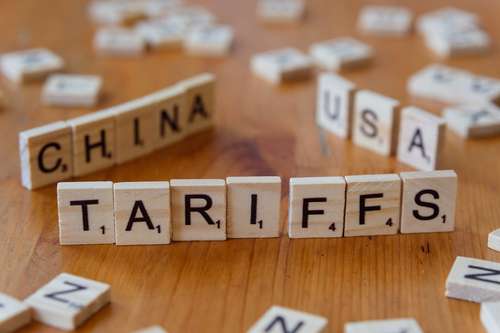After reaching the run-off second round of a presidential election that promises to be significantly tighter than their encounter five years ago, French President Emmanuel Macron and his far-right foe Marine Le Pen were ready for two weeks of rigorous campaigning on Monday.
With more than 90% of the votes in the first round counted, estimations showed Macron receiving 28-29 percent of the vote, while Le Pen received 22-24 percent.
They will compete in a second-round on April 24 as the top two finishers.
Despite entering the campaign late and holding only one rally, Macron outperformed expectations and received immediate support from the majority of his vanquished opponents ahead of the run-off.
"The conversation we will have over the next two weeks will be pivotal for our country and Europe." "You can't claim things are going well in our country when the far-right in all of its forms is so strong," he told supporters.
Jean-Luc Melenchon, a far-left contender, was on the verge of qualifying for the second round after a late surge gave him a projected score of around 21%.
The candidates for France's traditional ruling parties, the Socialists and Republicans, were headed for catastrophic defeats and historic low ratings. On Monday, the final results are expected.
Mr. Macron stated on Sunday night that he will be campaigning in northern France on Monday, while Ms. Le Pen will confer with her campaign team before returning to her months-long grassroots operations in small towns and rural France later this week.
In her bid to become France's first female president, Ms. Le Pen improved her first-round score from 2017, and in the second round, she will pick up votes cast for her far-right competitor Eric Zemmour.
Eric Zemmour, an anti-Islam newcomer who failed to outflank Ms. Le Pen with a more radical platform, was expected to get 7% of the vote.
The second round is expected to be tighter.
On Sunday night, opinion surveys projected a close second round between Macron and Le Pen.
Macron had a razor-thin winning margin of 51 percent to 49 percent in one poll conducted by the Ifop-Fiducial group, but the average of four surveys projected a Macron victory of roughly 53 percent to 47 percent.
According to Le Pen, the runoff will be a "basic decision between two visions," with Macron symbolizing "division, injustice, and disorder" and her plan ensuring "social justice and protection" through the nation state.
She described it as a "choice of society and even of civilization"
Significant ramifications for Europe
The outcome of the two-stage election will have significant ramifications for the European Union, which Le Pen claims she intends to overhaul substantially.
She has also stated her desire to leave NATO's unified military command, which is commanded by the United States.
"I want a France that places itself in a strong Europe and continues to forge partnerships with the world's democracies to defend itself," Macron said on Sunday.
"Not a France that would have only the international alliance of populists and xenophobes as allies once it left Europe." That's not who we are."
On April 20, the two contenders will participate in a TV debate that will be broadcast live on national television and watched by millions. This will be a critical occasion in the campaign's next stage.
The final debate frequently has a significant impact on the ultimate outcome, as was the case in 2017, when Mr. Macron was widely viewed as outperforming a panicked Ms. Le Pen.
While her opponents accuse her of being divisive and racist, Ms. Le Pen has attempted to portray a more moderate image in this campaign, focusing on voters' daily inflation concerns.
Traditional parties smashed
Among the other contenders, Socialist Anne Hidalgo, the mayor of Paris, was expected to receive 1.8-2.0 percent of the vote, a record low for the party that had the president only five years ago.
The right-wing Republicans, led by nominee Valérie Pécresse, saw their vote drop to an estimated 4.3-5 percent, down from 20 percent in 2017.
"Traditional political parties have been crushed," said Jerome Jaffre, a political scientist at Paris' Sciences Po university.
With a projected score of less than 5.0 percent, Greens candidate Yannick Jadot was likewise disappointed.




